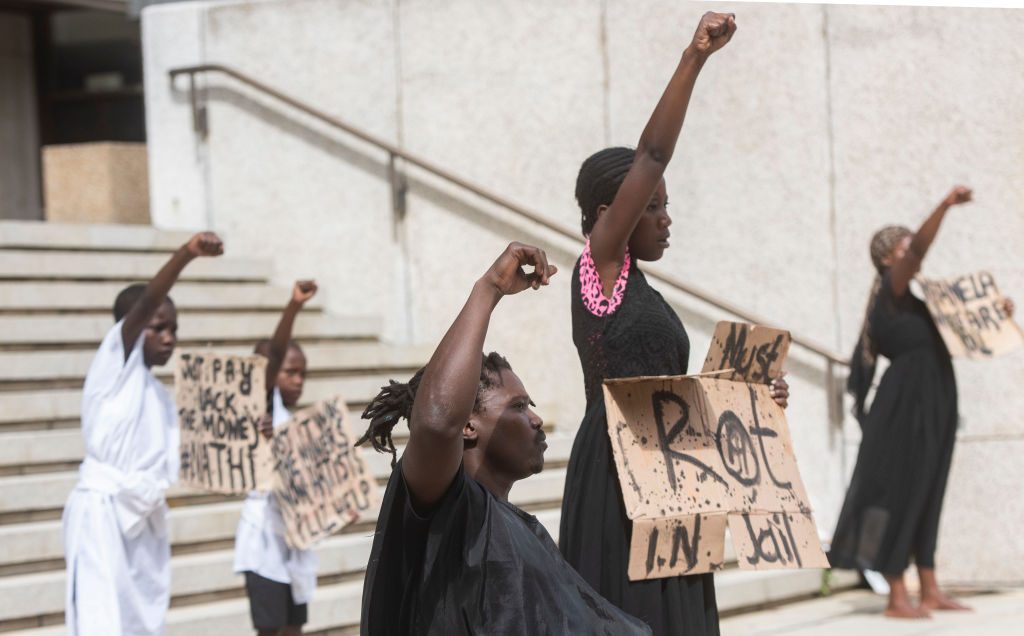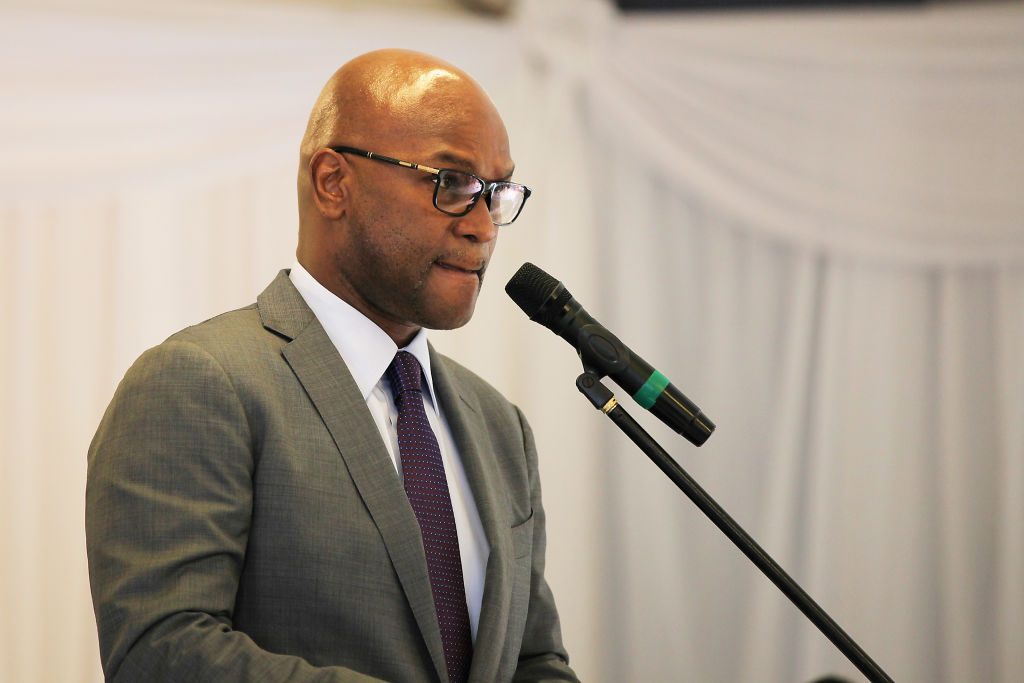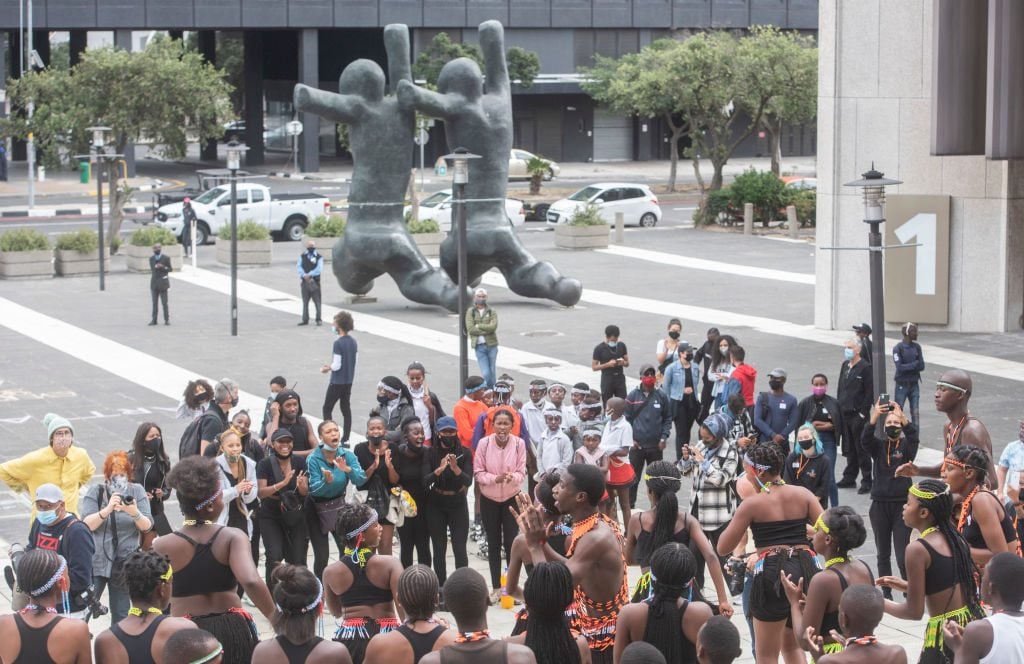Politics
Artists Stage Sit-Ins to Protest South Africa’s Mismanagement of Pandemic Aid and ‘Disappeared’ Funds for the Culture Sector
The culture ministry is currently investigating its own funding body.

The culture ministry is currently investigating its own funding body.

Kate Brown

South Africa’s culture ministry is facing anger from the public for ineffectively supporting the arts during lockdown. Artists’ complaints reached a fever pitch at the end of March after South African media reported that R300 million ($20 million) had “disappeared” from the National Arts Council’s funds.
Artists have been gathering in recent days in front of the National Arts Council’s offices in Johannesburg and Cape Town, and have been holding sits-in since the beginning of March. They are demanding to know where the money is and asking that the culture ministry make its list of beneficiaries public.
Last year, South Africa’s Presidential Employment Stimulus Package earmarked R300 million ($20 million) for the culture sector. In the months since, artists allege that the money has not been transferred quickly enough—or even at all. The country is now in yet another lockdown, which is set to continue for the next three weeks.

Minister of Sports, Arts and Culture, Nathi Mthethwa, is facing calls to resign over the scandal. Photo: Ziyaad Douglas/Gallo Images via Getty Images.
As arts workers grow increasingly desperate, the culture ministry is pointing fingers at its art council. The ministry told Artnet News that it is conducting an investigation into the funding body, which is an independently managed entity of the ministry.
A spokesperson from the ministry said that the $20 million was allocated to the the National Arts Council, and that the money seems to be accounted for. The issue, according to them, is that the council “overcommitted” another R260 million ($18 million) to artists that it did not have. This “gross mismanagement of funds,” according to the ministry, prompted suspensions of the council’s CEO and CFO until the investigation is finished.
Meanwhile, the arts council told Artnet News that it is trying to “expedite” the payment process. As of yesterday, it said that R86.4 million ($5.8 million) of the R300 million ($20 million) has been paid out.
The responses have not satisfied the arts sector. Curator Palesa Suthane told Artnet News that the government did not mitigate a year of “hardships for the South African art industry.”
“Galleries cut staff, art fairs were canceled,” she said. “Artists are simply not coping.”
Many in the culture sector want answers about why the support has been slow or missing altogether. “This money was meant for livelihoods, for artists to keep their studios in a time when art sales were at their lowest,” Suthane added.

Protestors gather in Cape Town during a protest action against the National Arts Council and the Department of Sports, Arts and Culture at the Artscape Plaza on March 27, 2021 in Cape Town. Photo: Brenton Geach/Gallo Images via Getty Images.
In February, artists signed a petition calling for the resignation of culture minister Nathi Mthethwa. Some say the current scandal is indicative of the culture ministry’s larger failure to support its diverse arts scene over the years.
“We are tired of being represented by placeholders, people who are not qualified art practitioners, people who only acknowledge and support artists when they receive global recognition or when they die,” Suthane told Artnet News, adding that the allegation that money was “overcommitted” was not a satisfactory explanation. “It is unacceptable, it’s embarrassing, and it really undermines our potential as the arts industry.”
A spokesperson from the ministry said that it will help find “a way forward on how artists will be compensated following an investigation.” Because the money was already promised to artists, who signed contracts for grants with the National Arts Council in many cases, the ministry said the funds must be found or else the government faces potential legal issues for breaching contracts. The ministry is currently looking to divert funds from elsewhere to this end.